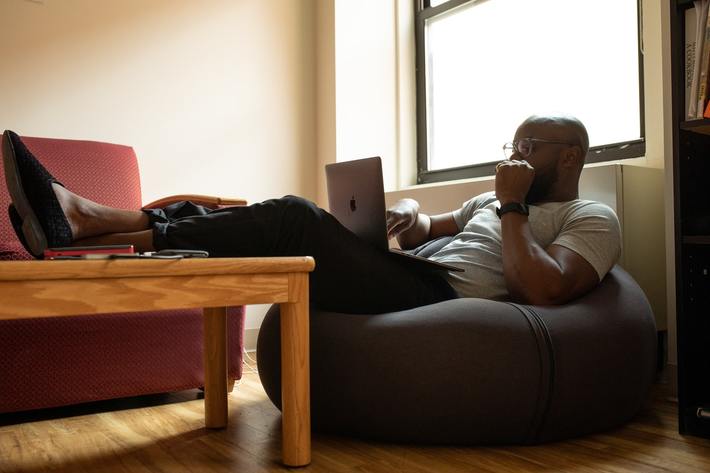
Image Source: Pexels
When the Covid-19 pandemic first hit, and a vast majority of the population was given the stay at home order by Prime Minister Boris Johnson. At the beginning and on the surface, the transition to enforced working from home which begun last year initially (and on its surface) allowed for much-needed flexibility for professional workers who were able to work from home during the COVID-19 crisis and shown that a remote workforce can continue working productively. However, the quieter demons and negative aspects of the experience such as loneliness and low mental health, lack of collaboration, and overall burnout have emerged and continue to emerge as the work from home saga goes on.
The concept of the office has been recently shown to actually be a healthy one, which was until recently, fairly unknown. The 9 to 5 working day and separate environment for work allows for a work-life balance, says Adam Nelson, a writer from OXEssays and UKWritings. The separate environment allows for a division between work life and home life that has not been viable during the Covid-19 pandemic. Studies have shown that working from home over the last year has led to longer hours, longer meetings, and spending more time using online and social media communication channels.
In a Los Angeles survey conducted this year, over sixty percent of professionals now working at home due to Covid-19 confessed that they do at least some work almost every weekend. In addition to this, 45 percent of Los Angeles remote workers say they now work more hours during the week than prior to the pandemic. This survey also discovered that parents who now worked remotely were actually more likely to work weekends and longer days than those surveyed without children.
Though the thought of remote work was expected to provide flexibility to workers during the pandemic, it has in reality made disconnecting from work almost impossible, explains Ian Jackson, an HR manager at Studydemic and Via Writing. The downside to an entire companys operation being able to function online and through communication channels such as Zoom and Google Meets, is that the only way to completely avoid work is to turn your phone off (something that rarely happens in our social media charged day and age).
NordVPN Teams, a New York VPN company has noted that, Remote working has led to a two and a half hour increase in each average working day. For example, in the UK, employees that would usually leave their jobs at 5 or 6 oclock at the latest are now logging off their online platforms around 8pm. Remote working has not only led to longer working days, but it has also produced shorter lunch breaks, and a sharp spike in working hours on so-called family holidays.
Over half of UK employees report working more than the hours that they are technically paid for during remote working, and a staggering 74% report stress, fatigue, or burnout during the so called flexible and relaxing work-from-home period. Working at home has led to longer hours, with some employees even allocating their previous commuting time to work as well. Another recent research study discovered that remote workers were undertaking one entire months more work per year, compared with before the pandemic.
So, does this mean the death of the office? While work can now be conducted entirely at home, this does not mean it will be productive in the long term. Yes, remote workers are now working longer and more for their employers currently; but the fatigue and burnout reported by current home workers will eventually lead to a massive downfall in productivity. As well as this, the creative exchange of ideas and lack of effective work-life balance has meant that working at home has come at both great personal and professional cost. Working from home this past year has been continuously proven to lead to longer hours, and it will continue to be detrimental to both personal and professional health and development unless we do our best to return to our offices as soon as it is safely possible.
About the Author:
Emily Henry is a professional article writer at Best assignment writing services and Essay Help Services who enjoys being involved in multiple all over the world. She is a work-from-home mother; and she enjoys traveling the world, reading and researching management topics and attending business training courses. She also contributes her writing skills at StudentWritingServices.
